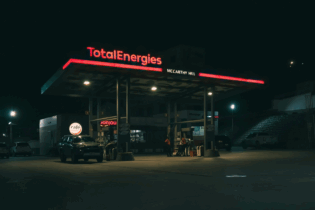Hundreds of billions of rand in investment into passenger and freight rail transportation is set to inject vigour into what has been a dying industry in SA. State freight logistics group Transnet and the Passenger Rail Association of SA (Prasa) have huge investments planned, causing companies from around the world to rush to SA to participate. In the process, local industry is expected to benefit substantially.
Prasa’s R123bn rolling stock replacement programme has attracted interest from the world’s biggest rail manufacturers. Last week, European manufacturer Alstom briefed local companies on what it sought in a supplier, with which it would partner.
Alstom is preparing to tender for the first of Prasa’s rolling stock projects. The winning bidder will design, manufacture, supply and maintain 3600 carriages over a 10-year period. The intention is to replace Prasa’s entire fleet. The average age of Metrorail’s coaches is 40 years; their lifespan is about 46 years.
The requirement for local content (goods and services sourced in SA) is 65%. In addition, there are broad-based black economic empowerment, local economic development, skills development, job creation and intellectual property transfer criteria attached to the tender, says Prasa CEO Lucky Montana.
The tenders are designed to force global rail manufacturers to partner local businesses. Olivier Baril, Alstom Transport vice-president for sourcing, says the company wants to work with a limited number of companies, but over a long period. It has asked suppliers to make proposals to it that are tailored to the specifications of the Prasa tender bid.
Alstom’s global market share is 12%, making it the second-biggest supplier after Canadian-based Bombardier, which has 15%. Sales of rolling stock are the biggest part of its transport business.
This week, the US’s General Electric (GE), which is supplying 143 locomotives to Transnet, said it had achieved a local content level of 37%. The locomotives will be delivered by the end of 2013.
GE’s close working relationship with Transnet Rail Engineering may put the company in a better position to win future contracts. Transnet is expected to issue a tender for the supply of 1300 new locomotives.
Tim Schweikert, CEO of GE transportation for sub-Saharan Africa, China & southeast Asia, says his company hopes to use its investment in rail engineering in SA as a springboard to expand into other African countries.
Similar to other global companies which have recently sought to enter the SA market, Schweikert says GE’s intention is to operate in the region over the long term.
The group has negotiated similar contracts where high levels of local participation are required, such as in China. Schweikert says that where localisation is required, there has to be a level of scale that justifies investment. In SA, the scale exists as a function of high freight traffic.
A newer entry into the region’s rail market is Barloworld, which has entered into an agreement with Caterpillar’s Electro-Motive Diesel to establish a new joint venture: Electro-Motive Diesel Africa. It hopes to provide locomotives and railway products and services, and will no doubt compete for its share of rail contracts. The firm’s newly appointed CEO, Sibani Mngomezulu, is a former Barloworld director. As with GE, other companies also hope to eventually export from SA to other African countries. Last year, Transnet Rail Engineering sold 18 passenger coaches and two power cars to Angola, through local firm Dominix Import & Exports. Dominix, which produces parts for GE and General Motors locomotives, is one of many SA companies set to benefit. It also manufactures railway sleepers and rail wagon parts. Addressing the Africa Rail conference last week, Montana said Prasa wanted to restore public confidence in commuter rail services. In addition, there were plans for further large investment in services. A high-speed rail is still on the agenda, though not for the next 10 years. Prasa’s immediate focus is to improve its Metrorail commuter service primarily in Gauteng, KwaZulu Natal and the Western Cape. Source: http://www.fm.co.za






